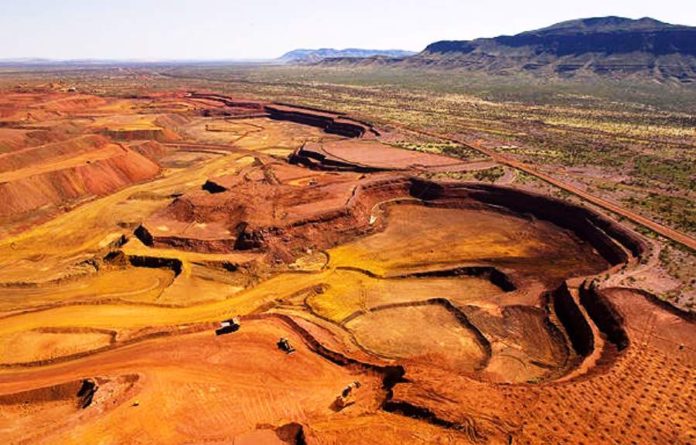The world’s second-largest mining company Rio Tinto announced on Friday the resignation of its Chief Executive Officer and two other top officials after the mining firm destroyed a 46,000-year-old aboriginal site.
In a statement issued in Melbourne on September 11, Rio Tinto announced that CEO Jean-Sebastien Jacques will be stepping down based on a mutual agreement along with the chief of the company’s core iron ore division, Chris Salisbury, and corporate relations head Simone Niven.
Growing investor clamor for the resignation of the Australian mining firm officials led to the resignations after the firm blasted one of the earliest known locations of aborigines located in the Juukan Gorge in the Pilbara region in Western Australia.
The Rio Tinto Board composed of shareholders, traditional owners, indigenous leaders, and other stakeholders engaged extensively to reach a response following an August 24 report from the Australian Board Review of Cultural Heritage Management.
“While there is general recognition of the transparency of the Board Review and support for the changes recommended, significant stakeholders have expressed concerns about executive accountability for the failings identified,” the statement said.
After a mutual agreement, it was agreed that Jacques will step down from his role as an executive director and Chief Executive Officer of the Group. The company said the process to identify his successor is underway.
“What happened at Juukan was wrong and we are determined to ensure that the destruction of a heritage site of such exceptional archaeological and cultural significance never occurs again at a Rio Tinto operation,” Rio Tinto chairman Simon Thompson said.
“We are also determined to regain the trust of the Puutu Kunti Kurrama and Pinikura people and other Traditional Owners. We have listened to our stakeholders’ concerns that a lack of individual accountability undermines the Group’s ability to rebuild that trust and to move forward to implement the changes identified in the Board Review,” Thompson added.
Other Rio Tinto officials to step down
Jaques will remain in his role until the appointment of his successor on or before March 31, 2021. The company said this will ensure business continuity to maintain the strong performance of the Group’s global operations during COVID-19.
Rio Tinto Chief Executive for Iron Ore Chris Salisbury will also step down with immediate effect and will leave Rio Tinto on December 31. Ivan Vella, currently Managing Director for Rail, Port & Core Services within Rio Tinto Iron Ore, will replace him on an interim basis, following a handover period.
Simone Niven will step down as Rio Tinto Group Executive for Corporate Relations and will leave the Group also on December 31 after completing an orderly transition of her responsibilities.
CEO Jean-Sebastien Jacques has been known for his strong leadership of the group since becoming Chief Executive in 2016 achieving the best safety performance in Rio Tinto’s history.
Rio Tinto Chairman Thompson also thanked Salisbury and Niven for their contribution to the success of Rio Tinto over many years.
“I know that all three individuals, like the rest of the Board, deeply regret the destruction of the Juukan rock shelters,” Thompson said.
The Juukan rock shelter caves are one of Australia’s most significant archaeological sites and had been the site where evidence of continuous human habitation dating back 46,000 years ago was discovered.
The caves, however, sat above about eight million tons of high-grade iron ore estimated at $96 million.
Artifacts recovered from the archaeological site include a 28,000-year-old animal bone tool and a 4,000-year-old belt made of plaited human hair, the BBC reported. DNA testing had directly linked the artifacts to the Puutu Kunti Kurrama and Pinikura people – the traditional owners of the land.
As previously announced, the company said Rio Tinto is establishing a new Social Performance assurance function, reporting to Mark Davies, Group Executive, HSE, Technical and Projects, to strengthen oversight of communities and heritage practices and performance within the operations.
In order to enhance Board engagement in Australia, Simon McKeon, a non-executive director, was also appointed Senior Independent Director of Rio Tinto Limited with immediate effect. This newly created Board role will complement the existing Senior Independent Director role, which will continue to be performed by Sam Laidlaw for Rio Tinto Plc.
Read More: Microsoft Identifies Groups Launching Cyberattacks on US Elections



